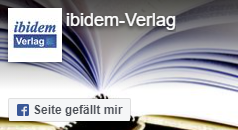- About the book
-
Details
Ukraine drew significant media attention after the 2013–2014 Revolution of Dignity and the subsequent undeclared war waged by Russia. However, the nature of these events and their impact on the social, economic, and political development of this country remain under-studied and, hence, often misunderstood. The reader is invited to take an inside look at the recent developments in Ukraine and to search for an answer to the question of whether transition from externally to internally driven development is possible in this case. Anton Oleinik argues that Ukraine is currently going through a revolutionary period aimed at building a nation-state and its aftermath. Ukraine is a latecomer in this process, especially compared with most other European countries. Its outcomes cannot be predicted with certainty. It is yet to be seen if a current surge in volunteerism and bottom-up civic initiatives will lead to the emergence of a viable and sustainable national democratic system in this country. - The author
-
About the author
Anton Oleinik is professor of sociology at Memorial University of Newfoundland and Labrador, MUN (St. John’s, Canada) and senior research fellow at the Central Economics and Mathematics Institute of the Russian Academy of Sciences, CEMI (Moscow). He holds two doctorates, in sociology (from the EHESS in Paris, 2000) and economic sciences (Habilitation from the CEMI, 2012). As a visiting professor, he taught at Smolny College (St. Petersburg State University, Russia), the National University of Mongolia (Ulaanbaatar), and the Academy of Public Administration under the President of the Republic of Kazakhstan (Astana). He authored The Invisible Hand of Power: An Economic Theory of Gatekeeping (Routledge, 2015), Knowledge and Networking: On Communication in the Social Sciences (Transaction, 2014; paperback edition: 2016); Market as a Weapon: The Socio-Economic Machinery of Dominance in Russia (Transaction, 2011; published in Russian by ROSSPEN), and Organized Crime, Prison and Post-Soviet Societies (Ashgate, 2003; also published in French by l’Harmattan and in Russian by Infra-M). He also edited several collected volumes, namely Changing the State without Changing the Model of Power (Routledge, 2009; paperback edition: 2016; published in Russian by ROSSPEN) and The Institutional Economics of Russia’s Transformation (Ashgate, 2005; published in Russian by Infra-M). His articles appeared in Quality & Quantity, Science & Engineering Ethics, Educational Research Review, Science in Context, Journal of Economic Issues, Europe-Asia Studies, Post-Communist Economies, Comparative Sociology, Crime, Law and Social Change, Public Policy and Administration, IATSS Research, and several other scholarly journals. Prof. Oleinik is also a regular contributor to Ukrainian Pravda, the most popular political internet-portal in Ukraine, Vedomosti and RBC Daily, two daily newspapers in Russia. - Reviews
-
Reviews
“This book presents the results of a set of original and innovative sociological inquiries into the state of culture, economy, and society of Ukraine, including their grounding in history and the impact of the events of 2013–2014. Using a wide range of research instruments—including surveys, interviews, discourse analysis, citation indices, most initiated by the author himself—Oleinik probes the growing uniqueness of Ukraine and ways in which it differs from Russia, in past and present. At the same time, each separate investigation is grounded in the best general literature on the subject and the author draws out the implications for it. Among the common foci are concerns with types of power and with differences in values, both shaped by Weberian or post-Weberian concepts. In short, this work is a tour de force that will prove highly stimulating to scholars who study Ukraine and to social scientists concerned with such topics as political culture and culture change, the sources of protest strategies, economic thought, the sources of economic progress, and volunteerism and its contribution to nation-building.
The study is above all an exercise in institutional sociology (although the author is also an economist). Both the attention to and use of concepts and the statistical analyses (featuring regressions) call for sophistication on the part of the reader. At the same time, the author also explains his findings in everyday language and teases out their implications. The larger unifying theme of the need for Ukraine to depend mainly on internal sources of development (moving away from a tradition of externally driven actions) is sensible and important. The analysis of the (changing) contributions of foreign and international aid projects adds to this message. In speculating about Ukraine’s future, Oleinik wisely allows for various scenarios. At the same time, he provides the reader with the possibility of positive outcomes. Above all, the work is thought-provoking.”—Peter H. Solomon, Jr., Professor of Political Science, Law and Criminology, University of Toronto
“The study of Ukraine in the aftermath of the 2014 events, the Maidan, is suffering from congestion because of the narrow, repetitive bandwidth of issues considered. This work is refreshing because it zeroes in on endogenous factors that resulted in a tectonic movement of societal plates that in the final analysis is the lasting contribution of the heroic mobilization of civil society. Oleinik is a welcomed new voice.”—Prof. Dr. Bohdan Krawchenko, Founding Director of the Institute of Public Administration and Local Governance at the Council of Ministers of Ukraine, Former Director of the Canadian Institute of Ukrainian Studies (CIUS) at the University of Alberta
“In light of the dramatic changes in Ukrainian society signified by the Euromaidan or Revolution of Dignity of 2013-2014, Anton Oleinik’s in-depth work is timely. […] Oleinik’s book is replete with nuances of Ukraine’s history and culture not addressed in the mainstream foreign literature. His discussion of foundational social science concepts would be useful for comparativists, while his historical insights and fresh empirical data make his book essential reading for Ukraine specialists.” –Dennis Soltys (KIMEP University, Almaty, Republic of Kazakhstan), 11/2018
“This book presents a descriptive study of the current state of Ukraine, with a thorough analysis of a large amount of qualitative and quantitative data.”—Europe-Asia Studies, issue 79/1 (2019) - Additional Information
-
Additional Information
Delivery time 2-3 Tage / 2-3 days Author Anton Oleinik Editor Andreas Umland Number of pages 496 Language English Publication date Mar 30, 2018 Weight (kg) 0.6440 ISBN-13 9783838211503













